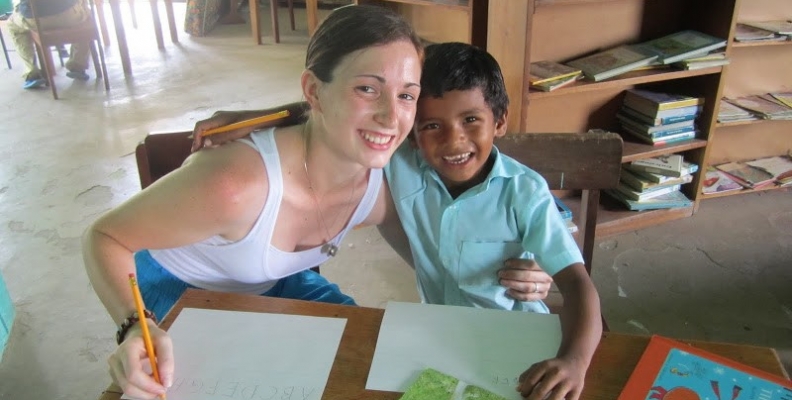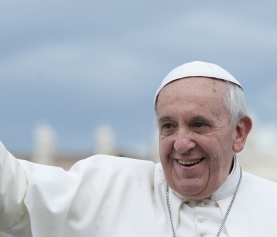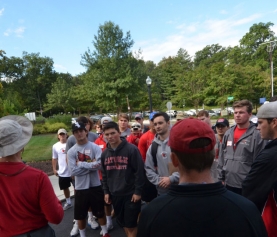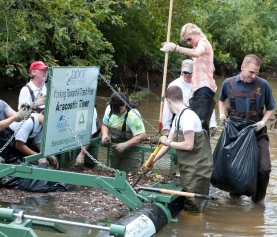
Father Eric de la Pena: Put your sword away! (Jn. 18:11)
Peter is often portrayed in the Gospel as impulsive — both to his advantage and disadvantage. He was the first to say that Jesus is the Christ, which merited him the keys of the Kingdom (Mt. 16:19). At the same time, Peter also impetuously opposed Jesus when he spoke of his passion and cross, which merited a sharp rebuke from Our Lord: “Get behind me, Satan” (Mt. 16:23). Peter’s rashness showed up once again when the Jews came to nab Jesus at the Garden of Gethsemane. He struck the servant of the high priest with a sword in an effort to protect his friend Jesus from being arrested. Christ’s response to this display of bravado probably astonished Peter, “Put your sword back into its sheath, for all who take the sword will perish by the sword” (Mt. 26:52). Was Jesus really serious about not retaliating “eye for an eye”?
One of the greatest perils of our day is the escalation of violence surrounding us. At times we almost feel helpless to resist it: Violence is readily served at breakfast, lunch, and dinner every time we watch the news or read the newspaper. We get so accustomed to accounts of bloodshed every day that the staggering number of death from war and crimes become mere statistics. What has happened to us? Where are we heading?
Pope Francis — whose namesake, St. Francis, was known as peace maker — certainly remains a prophetic voice in these turbulent times. When many have given up on the slow and difficult task of dialogue and reconciliation, Pope Francis insists that there can be no other alternative to secure the world’s future other than the path to peace. We saw this in action during his second apostolic journey to the Holy Land in May 2014.
Speaking before the Palestinian and Israeli leaders, the Pope offered them these challenging words: “All of us want peace. Many people build it day by day through small gestures and acts; many of them are suffering, yet patiently persevere in their efforts to be peacemakers. All of us — especially those placed at the service of their respective peoples — have the duty to become instruments and artisans of peace.” Then, in an unprecedented act, the Pope invited the two presidents, Mahmoud Abbas of Palestine and Shimon Peres of Israel, to pray with him in Rome. This invitation was accepted a month later as the two leaders met with Pope Francis at the Vatican. Who would have thought that two opposing leaders, from different faiths, could agree to pray for peace? At least, the Pope did!
Like Pope Francis, I don’t think that we have exhausted the path to peace locally and internationally. This is why we never tire of building bridges among peoples at Campus Ministry. Just this May, more than 50 of our students went on to a mission trip to Belize, Jamaica, and the Texas border. There they painted school buildings, played with the kids, served the undocumented immigrants, fed the hungry — they brought smiles to the people they met and served. I’m proud to say that our CUA students were true ambassadors of peace and good will — a great relief from the usual fodder found in newspapers. While the student volunteers sowed seeds of love through their simple acts of kindness, we hope that someday these same seeds will bring about a great harvest of justice and peace.
— Father Eric de la Pena, O.F.M. Conv., is an associate chaplain for faith development at The Catholic University of America.








